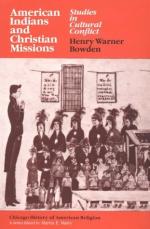|
This section contains 255 words (approx. 1 page at 300 words per page) |

|
Religious groups and organizations have long been involved in charity and social reform efforts. In recent years a growing number of political and social leaders in the United States have turned toward religious or “faith-based” organizations to assist or even take over the administration of social welfare functions previously handled by government, including welfare benefits, prisons, and drug and alcohol treatment. Proponents of such programs argue that they can achieve superior results because of the special commitment religion can inspire in both social welfare providers and recipients.
In 1996 Congress passed welfare reform legislation dubbed “Charitable Choice” that permitted religious groups who assisted and counseled welfare recipients (and who made their religious message an integral part of their work) to receive government funding. Al Gore and George
W. Bush, the major nominees for the 2000 presidential election...
|
This section contains 255 words (approx. 1 page at 300 words per page) |

|




